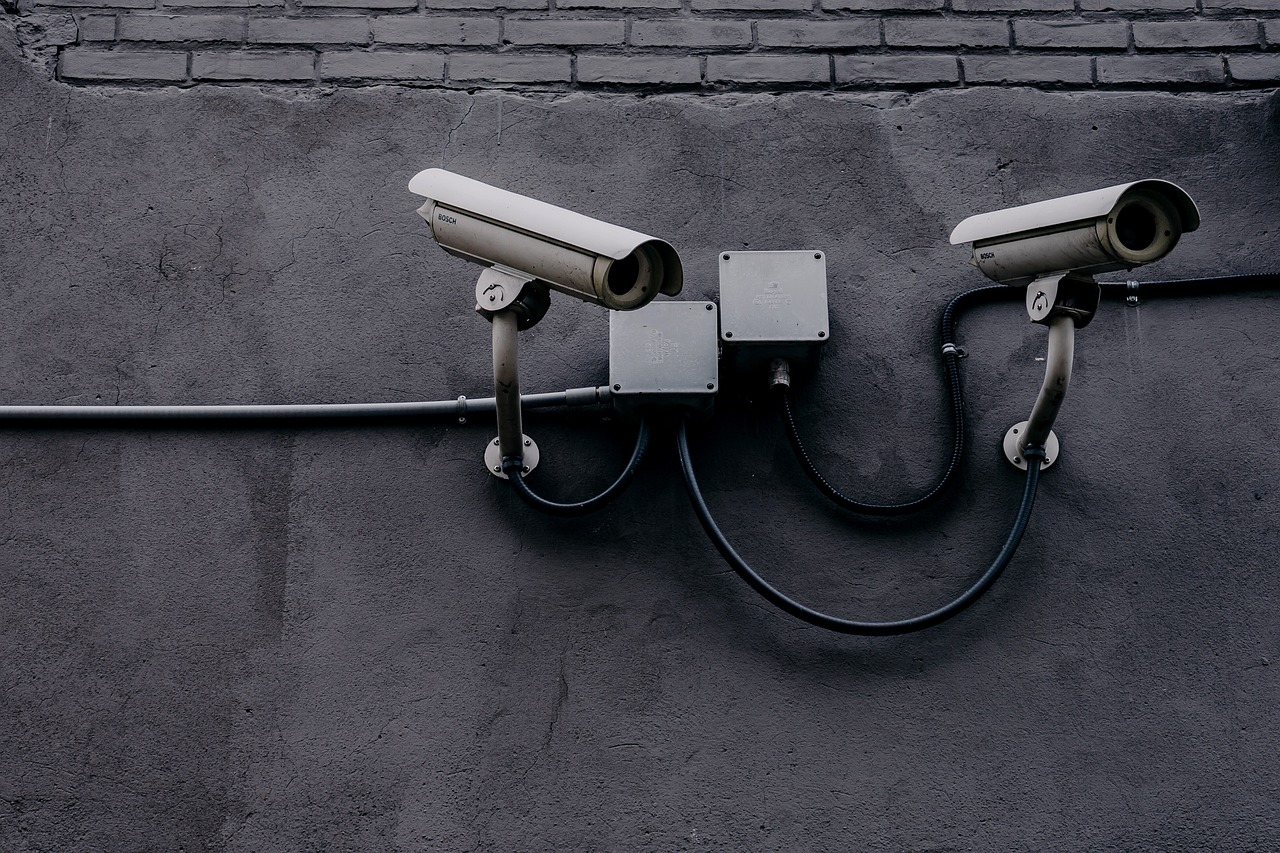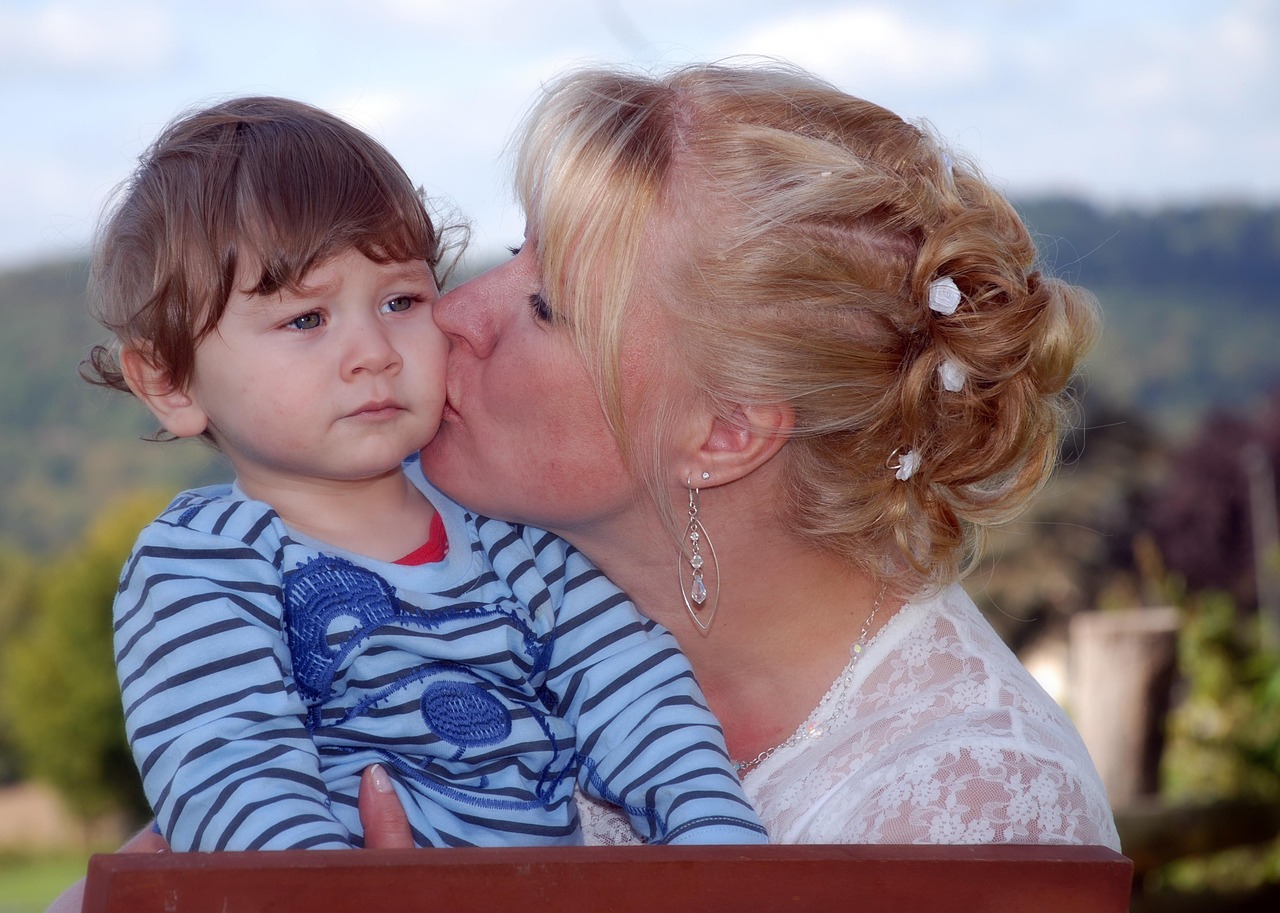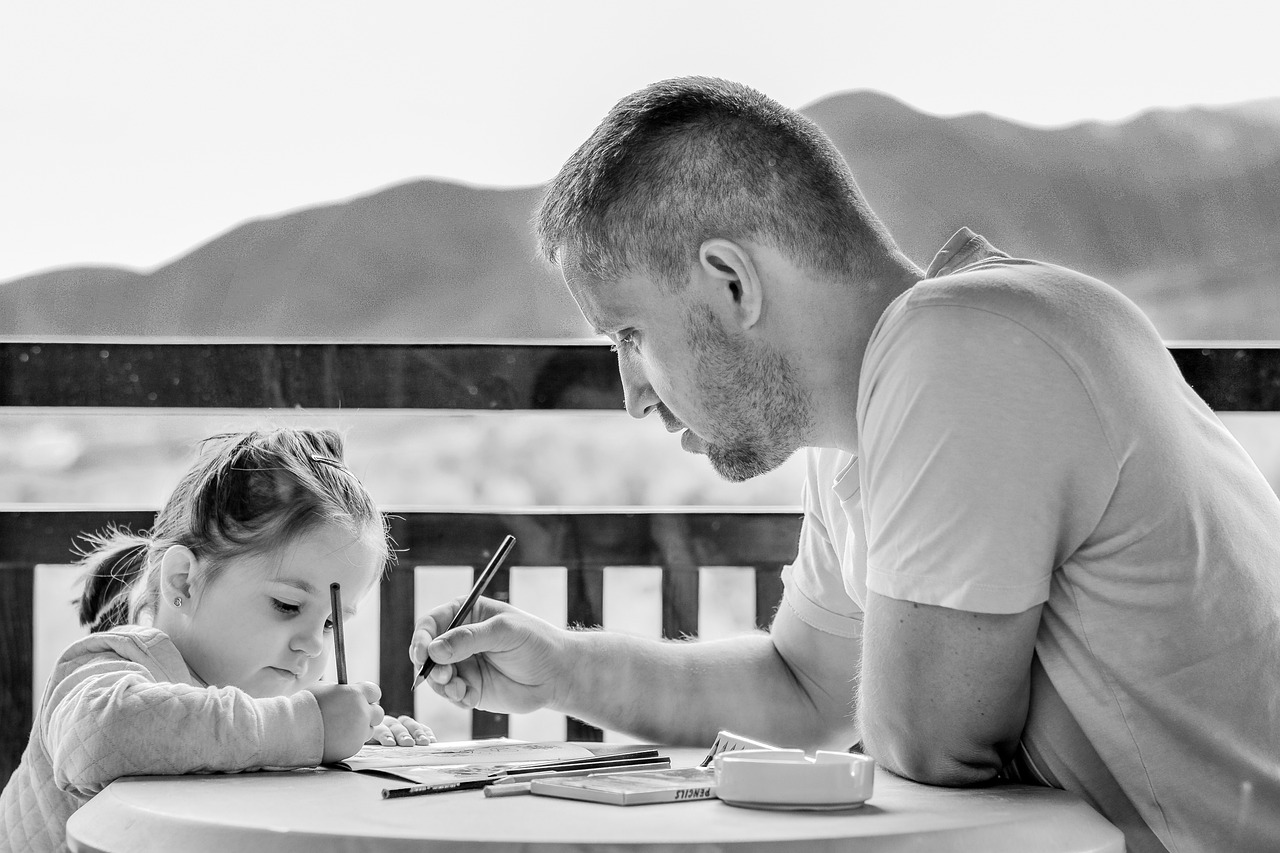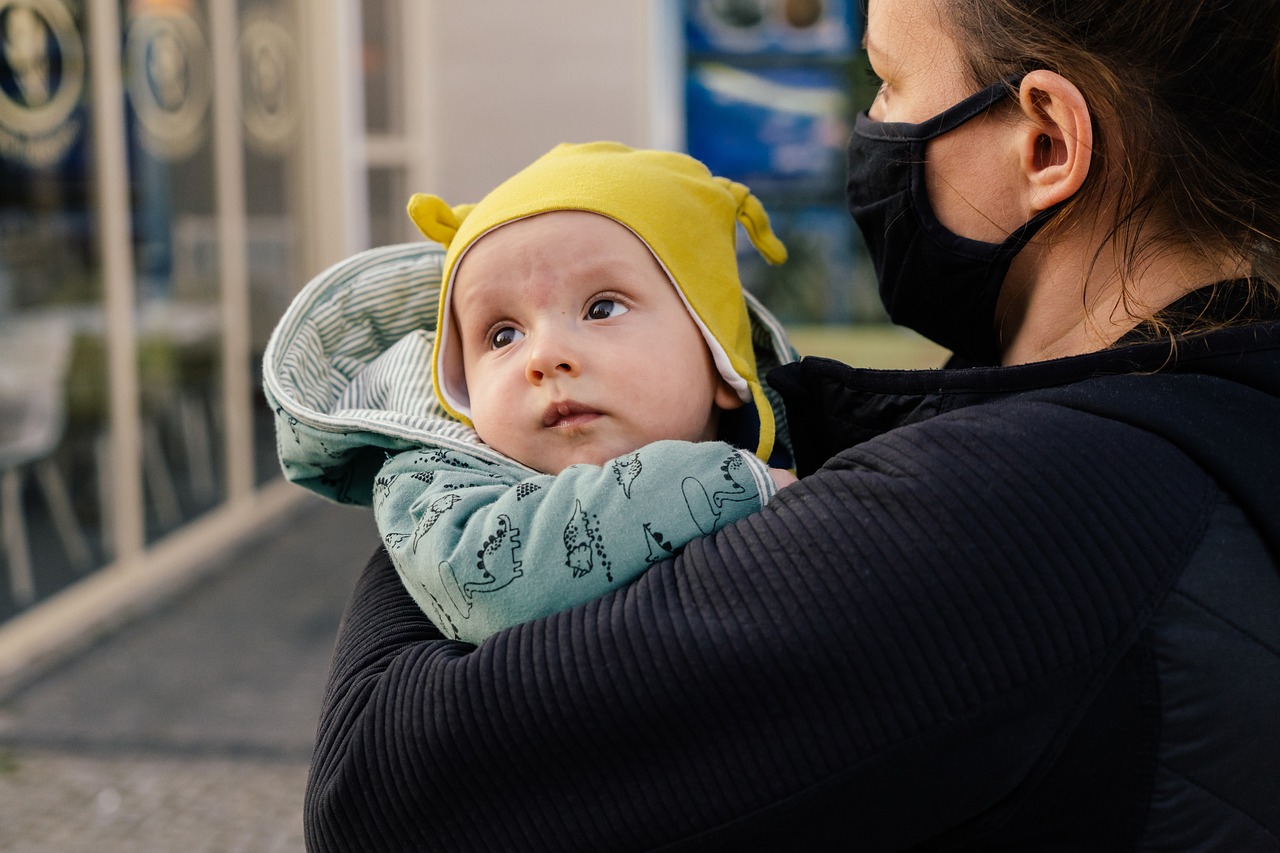Understanding the Ethics of Parental Surveillance
In today’s fast-paced digital world, the concept of parental surveillance has become a hot-button issue that stirs up a mix of emotions and opinions. As parents, the instinct to protect our children is natural, but where do we draw the line between safety and invasion of privacy? The ethics surrounding parental surveillance are complex, intertwining the threads of child safety, privacy rights, and the delicate fabric of trust that binds parent and child. This article aims to unravel these complexities, examining the motivations behind parental monitoring, the implications for child development, and the crucial balance between ensuring safety and preserving autonomy.
As we navigate through this topic, it’s essential to recognize that parental surveillance isn't just about keeping tabs on a child's activities; it’s about understanding the underlying motivations that drive such behaviors. Many parents feel compelled to monitor their children due to the overwhelming presence of technology in their lives. With social media, smartphones, and the internet at their fingertips, children are exposed to a myriad of risks, including cyberbullying, inappropriate content, and online predators. This reality ignites a protective instinct in parents, leading them to employ various forms of surveillance to safeguard their children. But does this instinct justify the methods used? Are we sacrificing our children's privacy for the sake of their safety?
Moreover, the implications of parental surveillance extend beyond immediate safety concerns. Constant monitoring can shape a child's development in profound ways. Children who grow up under the watchful eye of their parents may struggle with issues related to trust, autonomy, and even self-esteem. They may feel that their every move is scrutinized, leading to a sense of helplessness or rebellion. The question arises: can we find a way to protect our children without compromising their sense of independence? This article will explore these questions and more, aiming to provide a comprehensive understanding of the ethical landscape surrounding parental surveillance.
As we delve deeper, we’ll also touch upon the legal perspectives regarding parental surveillance. Laws vary widely across different jurisdictions, and understanding these can help parents navigate the often murky waters of monitoring their children. Are there legal boundaries that parents should be aware of? How can they ensure that their surveillance methods do not infringe upon their children’s rights? These are crucial considerations that every parent should take into account.
In conclusion, while the desire to protect our children is commendable, it’s essential to approach parental surveillance with a critical eye. By understanding the ethical implications, we can make informed decisions that not only prioritize safety but also nurture trust and independence in our children. As we continue to explore this topic, let’s keep in mind the importance of open communication and mutual respect between parents and their children. After all, fostering a safe environment goes beyond monitoring; it involves building a relationship based on trust, understanding, and shared values.
- What is parental surveillance? Parental surveillance refers to the methods parents use to monitor their children's activities, both online and offline, to ensure their safety.
- Is parental surveillance legal? Yes, parental surveillance is generally legal, but laws regarding privacy rights vary by location, and parents should be aware of these laws.
- How can parental surveillance affect a child's development? Constant monitoring can impact a child's sense of independence, self-esteem, and trust in their parents.
- What are alternatives to parental surveillance? Alternatives include fostering open communication, building trust, and educating children about online safety.

The Rationale Behind Parental Surveillance
Understanding why parents choose to monitor their children’s activities is crucial in today's digital landscape. The world has changed dramatically with the rise of technology, and so have parenting strategies. One of the primary motivations for parental surveillance is the inherent desire to protect children from potential dangers. With the internet being a vast ocean of information and interaction, parents often feel overwhelmed by the threats that lurk online, ranging from cyberbullying to inappropriate content. This protective instinct can lead to a sense of urgency in monitoring their children's online behavior.
Moreover, many parents believe that by keeping a close eye on their children’s activities, they can exercise a certain level of control over what their kids are exposed to. This control can manifest in various forms, from checking social media interactions to monitoring text messages. Parents may feel that this oversight is necessary to guide their children through the complexities of growing up in a digital age, where peer pressure and online influences can significantly impact their decisions.
Another fascinating aspect of parental surveillance is the fear of missing out on critical moments in their children's lives. Parents want to be involved and informed, ensuring they can step in when necessary. This desire for connection often drives them to utilize various monitoring tools, believing that it fosters a deeper understanding of their children's experiences and challenges. However, this approach can sometimes blur the lines between healthy involvement and intrusive monitoring.
Additionally, societal pressures play a significant role in shaping parental attitudes toward surveillance. With stories of child abductions and online predation frequently making headlines, parents may feel compelled to adopt surveillance measures, even if they are not entirely comfortable with them. The perception of safety can sometimes overshadow the importance of fostering independence in children. In this context, surveillance can be seen as a necessary evil, a way to navigate the turbulent waters of modern parenting.
In summary, the rationale behind parental surveillance is multifaceted, driven by a combination of protective instincts, a desire for control, the need for connection, and societal influences. While these motivations are understandable, they also raise important questions about the balance between safety and autonomy. As we delve deeper into the implications of parental surveillance, it becomes essential to consider both the benefits and the potential drawbacks of such practices.

Privacy Concerns in Parental Surveillance
In today’s digital age, the line between safety and privacy is increasingly blurred, especially when it comes to parental surveillance. Many parents feel compelled to monitor their children's online activities, driven by a genuine concern for their safety. However, this instinct often raises significant privacy concerns. Imagine a world where every move you make is watched; how would that affect your sense of freedom and trust? This is a reality children may face when subjected to constant monitoring.
One of the most pressing issues is the potential invasion of privacy. While parents argue that monitoring is necessary to protect their children from online dangers, it can lead to a feeling of being constantly scrutinized. Children, especially as they grow into their teenage years, crave independence and the ability to make their own choices. When parents overstep by excessively surveilling their activities, it can create a sense of rebellion and distrust. In fact, studies suggest that children who feel their privacy is invaded may be more likely to engage in secretive behavior, which defeats the very purpose of surveillance.
Moreover, the nature of the data collected through surveillance tools can be alarming. Parents may unwittingly gather sensitive information that their children do not wish to share. This can include not just browsing history but also personal conversations and interactions with friends. The question arises: At what point does monitoring become an invasion? It’s essential for parents to reflect on the information they are accessing and the implications it may have on their child's emotional well-being.
Furthermore, constant surveillance can foster an environment of resentment rather than trust. Children may feel that their parents do not respect their boundaries or privacy, leading to strained relationships. It’s like having a shadow that never leaves you; it can be suffocating. Parents need to consider how their actions might impact their relationship with their children. Establishing a foundation of trust and open communication is vital. Instead of viewing surveillance as a protective measure, parents should ask themselves if there are alternative ways to ensure safety without compromising their child's autonomy.
To illustrate the tension between safety and privacy, consider the following table that outlines some common surveillance practices alongside their potential impacts:
| Surveillance Practice | Potential Impact on Child |
|---|---|
| Monitoring social media accounts | Can lead to feelings of distrust and resentment |
| Using GPS tracking | May create anxiety over constant supervision |
| Reading text messages | Invasion of personal space; may encourage secrecy |
| Tracking internet history | Can lead to a lack of open communication about online safety |
In conclusion, while the intention behind parental surveillance is often rooted in love and concern, it is crucial to recognize the potential privacy issues that can arise. Parents must navigate this delicate balance, ensuring they protect their children while also respecting their privacy. Ultimately, fostering an environment of trust and open dialogue may prove to be more beneficial than any tracking tool available today.
- What are the ethical implications of parental surveillance? - Ethical implications include the potential violation of a child's right to privacy and the impact on the parent-child relationship.
- How can parents monitor their children without invading their privacy? - Open communication and setting clear boundaries can help maintain trust while ensuring safety.
- What are the long-term effects of being constantly monitored? - Long-term effects may include trust issues, anxiety, and difficulties in establishing personal boundaries in adulthood.
- Are there legal restrictions on parental surveillance? - Yes, laws vary by location, but parents should be aware of privacy rights and the extent of their monitoring capabilities.

The Impact on Child Development
When we think about parental surveillance, it's hard not to consider its profound impact on a child's development. Imagine a young bird trying to learn to fly, but instead of spreading its wings, it’s constantly watched and guided by its parents. This scenario is not too far from what many children experience today in a world where technology allows for constant monitoring. While the intention behind parental surveillance is often rooted in safety, the consequences can be more complex and multifaceted.
One of the most significant effects of constant monitoring is the potential stunting of a child's emotional growth. Children who feel they are under a microscope may struggle to develop a sense of independence. They might grow up second-guessing their decisions or feeling inadequate when faced with challenges. This lack of autonomy can lead to a host of issues, including:
- Low self-esteem: Constant observation can create a fear of failure, making children hesitant to try new things.
- Trust issues: If children feel they are not trusted, they may be less likely to communicate openly with their parents.
- Rebellion: Over-monitoring can lead to a pushback, where children might seek freedom in unhealthy ways.
Moreover, the psychological effects of being constantly monitored can extend into adulthood. As these children grow into teenagers and eventually adults, they may find it challenging to establish healthy relationships based on trust and mutual respect. The feeling of being surveilled can create a barrier to open communication, leading to a cycle of secrecy and deceit. They might even carry this learned behavior into their own parenting styles, perpetuating a cycle of control and surveillance.
In addition to emotional and psychological impacts, there's also the question of how surveillance affects a child's ability to navigate the world. Children learn from their mistakes, and when parents are always stepping in to prevent those mistakes, it can hinder their problem-solving skills. It's like trying to teach someone to ride a bike while holding onto the handlebars—eventually, they need to learn how to balance on their own.
Ultimately, the challenge lies in finding a balance between ensuring safety and allowing children the freedom to explore and learn. Parents must ask themselves: Are we protecting our children, or are we inadvertently limiting their growth? The answer may lie in fostering an environment that encourages open dialogue about safety while also granting children the space to make their own choices.
Q: How can parents strike a balance between safety and autonomy?
A: Open communication is key. Discuss safety concerns with your children and involve them in decision-making processes, allowing them to express their views.
Q: What are some signs that parental surveillance is negatively affecting a child?
A: Watch for signs of anxiety, secrecy, or reluctance to engage in new experiences. These can indicate that a child feels overly monitored.
Q: Are there alternatives to constant monitoring?
A: Yes! Building trust through communication, setting clear expectations, and encouraging independence can help create a safer environment without invasive surveillance.

Balancing Safety and Autonomy
When it comes to parenting, finding the right balance between keeping your child safe and allowing them the freedom to grow is like walking a tightrope. On one side, there’s the instinctual urge to protect your child from the myriad of dangers lurking in the world, especially in this digital age where threats can be both physical and virtual. On the other side, there’s the need to foster independence and self-reliance in your child, essential traits that will aid them as they transition into adulthood.
Imagine your child as a bird learning to fly. If you keep them in a cage, they may never learn to spread their wings and soar. However, if you let them fly too freely without any guidance, they might crash into something harmful. This analogy perfectly encapsulates the challenge parents face: how do you provide enough oversight to ensure safety without stifling your child's growth and autonomy?
One effective approach to achieving this balance is to engage in open communication. Discussing the reasons behind certain rules or monitoring measures can help children understand that these actions stem from a place of love and concern rather than control. For instance, instead of simply installing monitoring apps on their devices, consider sitting down with your child and explaining the importance of internet safety. This not only promotes a sense of trust but also empowers them to make informed decisions.
Moreover, it’s crucial to establish clear boundaries. Instead of a blanket surveillance approach, tailor your monitoring to your child's age and maturity level. For younger children, more supervision may be necessary, while older teens may require more freedom, coupled with trust. Engaging them in discussions about privacy can also help them understand the importance of personal space, allowing them to express their feelings about surveillance.
Ultimately, the goal should be to cultivate an environment where children feel safe yet free. This can be achieved through a combination of trust-building exercises and encouraging responsible decision-making. For example, you might say, "I trust you to make good choices, but if you're ever in a situation that feels unsafe, I want you to come to me." This approach not only reassures children of their safety but also reinforces their ability to navigate the world independently.
In conclusion, balancing safety and autonomy is not a one-size-fits-all equation. It requires ongoing dialogue, understanding, and a willingness to adapt as your child grows. By fostering an environment of trust and open communication, parents can ensure that their children not only feel secure but also empowered to explore their world.
- What is the best way to approach parental surveillance?
Open communication and establishing trust are key. Discuss your reasons for monitoring and involve your child in the conversation. - How can I ensure my child feels autonomous?
Gradually give them more freedom as they demonstrate responsibility, and encourage them to make their own decisions. - What are some signs that I might be over-monitoring?
If your child expresses feelings of resentment or frustration, or if they seem anxious about their privacy, it may be time to reassess your approach.

Long-Term Effects of Surveillance
The long-term effects of parental surveillance can be profound and multifaceted, influencing a child's psychological development and their future relationships with trust and privacy. Imagine a child growing up under the constant watchful eye of their parents, where every move is monitored, and every interaction is scrutinized. This environment can create a sense of security, but it can also lead to significant drawbacks. Children may develop a sense of anxiety or paranoia, feeling as though they are never truly free. They might question their own decisions, always wondering if they are being watched and judged.
Moreover, the impact of surveillance can extend into adulthood. For instance, individuals who were heavily monitored as children may struggle with establishing boundaries in their own relationships, leading to difficulties in trusting others. They may also adopt an overly cautious approach to life, fearing repercussions for their actions due to their upbringing. This can create a cycle where the individual feels compelled to control their environment, mirroring their parents' behaviors.
Research suggests that children who experience excessive surveillance may develop lower self-esteem. They may internalize the belief that they are not capable of making sound decisions on their own. This lack of confidence can hinder their ability to assert themselves in various situations, from personal relationships to professional environments. As they transition into adulthood, these individuals might find it challenging to navigate the complexities of life without the guiding hand of parental oversight.
Furthermore, the effects of surveillance can create a paradox. While parents often justify their monitoring as a means to protect their children, it can inadvertently foster rebellion. Children might seek to reclaim their autonomy by engaging in secretive behaviors or defiance, leading to a breakdown in communication and trust. This can create a rift in the parent-child relationship, where the child feels compelled to hide aspects of their life, further complicating the dynamics of trust.
In essence, the long-term effects of parental surveillance are not to be taken lightly. Parents must consider how their monitoring practices will shape their child's future. Finding a balance between safety and autonomy is crucial. Open dialogues about privacy, trust, and the reasons behind certain monitoring practices can help mitigate some of these negative effects. By fostering an environment of understanding, parents can encourage their children to develop a healthy sense of independence while still feeling secure.
Ultimately, the challenge lies in recognizing that while the intentions behind parental surveillance may be rooted in love and concern, the methods employed can have lasting repercussions. Parents must navigate this delicate balance with care, ensuring that their desire to protect does not come at the cost of their child's emotional and psychological well-being.
- What are the psychological effects of parental surveillance on children?
Parental surveillance can lead to anxiety, low self-esteem, and difficulties in trusting others as children grow into adulthood. - How can parents balance safety and autonomy?
Open communication about privacy and trust, along with setting clear boundaries, can help maintain this balance. - Are there alternatives to monitoring my child?
Yes, fostering a relationship based on trust and encouraging open discussions can effectively replace invasive monitoring. - What role does technology play in parental surveillance?
Technology provides tools for monitoring but must be used ethically to avoid infringing on a child's privacy.

Legal Perspectives on Parental Surveillance
When it comes to parental surveillance, the legal landscape is as complex as a maze. Parents often find themselves navigating various laws that govern privacy rights, especially as technology continues to evolve. It's essential to recognize that while parents have a responsibility to protect their children, this duty does not grant them unlimited rights to invade their children's privacy. The key question is: where do we draw the line?
In many jurisdictions, the law tends to favor the rights of children to some degree. For instance, laws regarding electronic communications often stipulate that minors have specific protections against unauthorized monitoring. This means that parents may need to tread carefully, ensuring that their methods of surveillance do not infringe upon their children's rights. It's a bit like walking a tightrope; one misstep could lead to legal repercussions.
Furthermore, the legal implications can differ based on the age of the child. For younger children, parents generally have more leeway in monitoring their activities, as they are considered to be under their guardianship. However, as children grow into teenagers, their expectations of privacy increase. This shift can lead to a legal gray area where the rights of the parent and the rights of the child clash. In some cases, parents may even face legal action if their surveillance methods are deemed excessively invasive.
To illustrate the legal nuances, here's a brief overview of some relevant laws that may apply:
| Law | Description |
|---|---|
| Children's Online Privacy Protection Act (COPPA) | This U.S. law restricts the collection of personal information from children under 13 without parental consent. |
| Electronic Communications Privacy Act (ECPA) | This law protects the privacy of electronic communications and may limit the extent of parental monitoring. |
| State Privacy Laws | Many states have their own laws regarding privacy that may impact parental surveillance practices. |
As technology advances, so do the laws that govern it. Parents must stay informed about the legalities surrounding surveillance tools and practices. Ignorance of the law is not an excuse, and parents might find themselves in hot water if they misuse their surveillance capabilities. Therefore, it's crucial to strike a balance between monitoring for safety and respecting privacy rights.
In conclusion, while the instinct to protect is strong, the legal perspectives on parental surveillance remind us that there are boundaries. Parents should aim to foster an environment of trust and open communication, steering clear of overly invasive methods that could lead to legal issues and strained relationships. After all, the ultimate goal is to ensure the safety and well-being of children while respecting their emerging autonomy.
- What are the legal limits of parental surveillance? The legal limits vary by jurisdiction, but generally, parents must respect their children's rights to privacy, especially as they age.
- Can parents monitor their children's online activities? Yes, but they should be aware of laws like COPPA, which require parental consent for collecting information from children under 13.
- What are the consequences of illegal surveillance? Parents may face legal action, including fines or loss of custody, if they violate privacy laws.
- How can parents balance safety and privacy? Open communication and trust-building are key. Parents should discuss their monitoring practices with their children.

Technological Tools for Monitoring
In today's digital age, parents have a plethora of technological tools at their disposal to monitor their children's activities. These tools range from simple applications to sophisticated software designed to track online behavior. With the rise of smartphones, tablets, and other devices, the ability to keep an eye on what children are doing has become both easier and more complex. But what are these tools, and how do they impact family dynamics? Let's dive deeper into the world of parental monitoring technology.
One of the most common tools parents use is GPS tracking apps. These applications allow parents to know the real-time location of their children, providing peace of mind, especially for younger kids or teens who may be out with friends. However, while the intention is to ensure safety, it can sometimes feel like a breach of trust. Imagine a child feeling like a prisoner in their own life, constantly under surveillance. This is where the balance between safety and autonomy becomes crucial.
Another popular category of monitoring tools includes social media monitoring applications. These tools enable parents to keep tabs on their children's online interactions, including messages, posts, and even the friends they interact with. While this can help prevent cyberbullying or exposure to inappropriate content, it raises significant privacy concerns. Parents must ask themselves: at what point does monitoring cross the line into invasion of privacy? This is a fine line that can lead to trust issues if not handled delicately.
To give you a clearer picture, here’s a comparison table of some popular monitoring tools:
| Tool | Functionality | Pros | Cons |
|---|---|---|---|
| GPS Tracking Apps | Real-time location tracking | Increased safety | Can feel invasive |
| Social Media Monitoring | Tracks online interactions | Prevents cyberbullying | May breach trust |
| Screen Time Management | Limits device usage | Encourages healthy habits | Can lead to rebellion |
| Content Filtering Software | Blocks inappropriate content | Protects from harmful material | May restrict legitimate access |
Screen time management tools are also gaining traction among parents. These applications allow parents to set limits on how much time their children can spend on devices. While this promotes a healthy balance between online and offline activities, it can sometimes lead to resistance from children who feel their freedom is being curtailed. It’s akin to putting a leash on a dog; while the intention is to keep them safe, it can also lead to frustration and a desire to break free.
Furthermore, content filtering software is another essential tool in a parent’s arsenal. This software blocks inappropriate content and ensures that children are not exposed to harmful material. However, it’s essential to approach this technology with caution. Over-filtering can prevent children from accessing legitimate information and learning opportunities, much like putting blinders on a horse. Parents must find a way to protect their children while still allowing them the freedom to explore the digital landscape.
Ultimately, while these technological tools can provide a sense of security, they also come with a set of ethical dilemmas. Parents need to consider the long-term implications of their monitoring practices. Are they fostering a sense of independence and trust, or are they inadvertently creating a culture of surveillance that may lead to resentment? The key lies in open communication and establishing boundaries that respect both the parent’s desire to protect and the child’s need for autonomy.
Q: Are monitoring tools necessary for all children?
A: Not necessarily. The need for monitoring tools varies based on the child's age, maturity, and the specific circumstances. Open communication can often be just as effective.
Q: How can parents use monitoring tools without invading privacy?
A: Parents should have honest discussions with their children about why monitoring is necessary. Setting clear guidelines and respecting boundaries can help maintain trust.
Q: What are the signs that monitoring is becoming excessive?
A: If a child expresses feelings of being controlled or if there are increased conflicts about privacy, it may indicate that monitoring is excessive.

Ethical Use of Technology
In an age where technology is deeply embedded in our daily lives, the ethical use of surveillance tools by parents has become a hot topic. It's essential to recognize that while these tools can provide a sense of security, they also come with a hefty responsibility. Parents must navigate the murky waters of monitoring their children without crossing the line into invasion of privacy. But how can they do this? The answer lies in understanding the principles of ethical technology use.
First and foremost, transparency is key. If parents choose to utilize monitoring apps or devices, they should have an open conversation with their children about it. This means explaining why they feel the need to monitor and discussing the potential risks involved with online activities. By fostering an environment of open dialogue, parents can help their children understand that the intention behind surveillance is not to control but to protect. This can significantly reduce feelings of resentment and mistrust that may arise from secretive monitoring.
Moreover, it's crucial for parents to set boundaries on how much information they gather. For instance, while tracking location can be beneficial for safety, delving into private messages or social media interactions can feel intrusive. Parents should consider the age and maturity of their children when deciding which types of monitoring are appropriate. A younger child may need more oversight, while a teenager might benefit from a greater degree of autonomy. This balance not only respects the child's privacy but also nurtures their growing independence.
Another important aspect of ethical technology use is understanding the potential psychological impact on children. Constant surveillance can create a sense of being watched, which may lead to anxiety or rebellion. Parents should strive to create a supportive environment where children feel they can express themselves without fear of judgment. Instead of relying solely on technology, parents can focus on building trust and encouraging responsible behavior through education and guidance.
In addition to these considerations, parents should also be aware of the legal implications surrounding surveillance technologies. Different regions have varying laws regarding privacy rights, and parents must ensure they are compliant with these regulations. Understanding the legal landscape not only helps safeguard the family but also reinforces the importance of ethical practices in monitoring.
Ultimately, the ethical use of technology in parental surveillance hinges on a few core principles: transparency, respect for privacy, understanding psychological impacts, and legal compliance. By adhering to these guidelines, parents can create a safer environment for their children while also fostering a sense of trust and mutual respect. It’s about striking a balance that allows for safety without compromising the child’s autonomy.
- What are the most common tools used for parental surveillance? Popular tools include GPS tracking apps, social media monitoring software, and screen time management applications.
- How can I discuss surveillance with my child? Start by explaining your concerns and the reasons behind your decision to monitor. Encourage an open dialogue where your child can express their feelings.
- Is there a legal limit to how much I can monitor my child? Yes, laws regarding privacy rights vary by location. It’s important to research and understand the laws applicable in your area.
- What are some alternatives to constant surveillance? Alternatives include fostering trust through communication, setting clear expectations, and educating your child about online safety.

Alternatives to Surveillance
In a world where parental surveillance has become increasingly common, it’s essential to explore effective alternatives that foster trust and communication between parents and children. Instead of resorting to invasive monitoring, parents can adopt strategies that promote a healthy environment for growth and development. After all, isn’t it better to build a bridge of trust rather than a wall of surveillance?
One of the most impactful alternatives to surveillance is open communication. By engaging in regular conversations with children about their experiences, parents can gain insights into their lives without needing to resort to monitoring tools. This dialogue not only helps parents stay informed but also encourages children to express their thoughts and feelings freely. Imagine a scenario where a child feels comfortable sharing their day-to-day experiences with their parents without fear of judgment or reprimand. This is the kind of relationship that nurtures confidence and self-esteem.
Another beneficial approach is to focus on education. Teaching children about online safety, the importance of privacy, and the potential risks associated with technology can empower them to make informed decisions. Instead of watching their every move, parents can equip their children with the knowledge they need to navigate the digital landscape responsibly. This education can take the form of discussions, workshops, or even online resources that parents and children explore together.
Furthermore, establishing rules and guidelines regarding technology use can create a framework that both parents and children agree upon. For example, setting specific times for device usage or designating tech-free zones in the house can help manage screen time without the need for constant oversight. This collaborative approach fosters a sense of responsibility in children, allowing them to understand the boundaries while also granting them a degree of autonomy.
To illustrate the effectiveness of these alternatives, consider the following table that compares traditional surveillance methods with more constructive approaches:
| Surveillance Methods | Alternative Approaches |
|---|---|
| GPS tracking on devices | Open discussions about whereabouts |
| Monitoring social media activity | Educating about online safety and privacy |
| Restricting access to certain websites | Setting collaborative rules for internet usage |
| Constantly checking text messages | Encouraging honest communication |
Lastly, it’s vital to remember that fostering independence is a crucial part of child development. Allowing children to make decisions and learn from their mistakes can be far more beneficial than hovering over them with constant surveillance. Just as a bird learns to fly by taking risks, children thrive when given the opportunity to explore their boundaries. By focusing on these alternatives, parents can cultivate a nurturing environment that prioritizes trust and respect over control.
Q: What are some effective ways to communicate with my child about their online activities?
A: Start by asking open-ended questions about their day-to-day experiences online. Encourage them to share their thoughts and feelings without fear of punishment. Make it a regular practice to check in with them about their online interactions.
Q: How can I educate my child about online safety?
A: Use resources such as educational websites, books, or workshops that focus on internet safety. Discuss real-life scenarios and encourage them to ask questions about anything they find confusing or concerning.
Q: What if my child resists setting rules for technology use?
A: Involve them in the rule-setting process. Discuss the reasons behind the rules and how they can benefit them. When children feel a sense of ownership over the rules, they are more likely to adhere to them.
Frequently Asked Questions
- What are the main reasons parents choose to monitor their children's activities?
Parents often feel compelled to monitor their children due to safety concerns, especially in today's digital world where threats can come from various online platforms. They want to ensure their children are safe from cyberbullying, inappropriate content, and potential predators. Additionally, some parents believe that monitoring provides a sense of control, helping them guide their children through the complexities of growing up in a tech-savvy environment.
- How does parental surveillance affect the parent-child relationship?
The impact of parental surveillance on the parent-child relationship can be quite profound. While some parents argue that it fosters a sense of security, excessive monitoring can lead to feelings of mistrust and resentment in children. This invasion of privacy may create a divide, making children feel as though they are not trusted or respected, which can ultimately harm their emotional well-being and the overall family dynamic.
- Can constant monitoring harm a child's development?
Yes, constant monitoring can negatively affect a child's emotional and psychological growth. When children feel they are always being watched, it can undermine their sense of independence and self-esteem. They may struggle to develop decision-making skills and learn from their mistakes, which are crucial for personal growth. Striking a balance between safety and autonomy is essential for healthy development.
- What are the legal implications of parental surveillance?
The legal landscape surrounding parental surveillance is complex and varies by region. In general, parents have the right to monitor their children, especially minors. However, there are laws regarding privacy rights that parents must consider. It's crucial for parents to stay informed about local laws to ensure they are not infringing on their children's rights while trying to keep them safe.
- What technological tools are available for parental monitoring?
There are numerous technological tools available for parents looking to monitor their children's activities. These range from apps that track location and online activity to software that filters content and restricts access to certain websites. While these tools can provide insights into children's behavior, it's important for parents to use them responsibly and ethically, ensuring they maintain open lines of communication with their kids.
- Are there ethical ways to use technology for monitoring?
Absolutely! Ethical use of technology involves being transparent with children about the monitoring practices in place. Parents should explain why they feel the need to monitor and engage their children in discussions about privacy and safety. This approach fosters trust and encourages children to be part of the conversation, rather than feeling like they are being spied on.
- What alternatives to surveillance can parents consider?
Instead of relying solely on surveillance, parents can adopt alternative approaches that emphasize communication, trust-building, and education. This includes having open discussions about online safety, encouraging children to share their experiences, and teaching them how to navigate the digital world responsibly. By fostering a supportive environment, parents can help their children feel safe while also promoting independence.


















